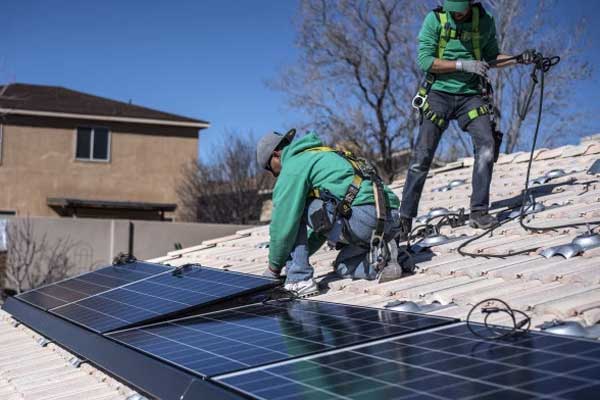New Jersey — Verizon announced new goals to advance its sustainability initiatives and a new social impact innovation program called Forward for Good Accelerator.
These initiatives are part of Citizen Verizon, the company’s responsible business plan for economic, environmental and social advancement.
Verizon announced two new science-based emissions reduction targets, committing to a 53 percent reduction in its operational emissions (Scope 1 and 2) between 2019 and 2030, and a 40 percent reduction in its value chain emissions (Scope 3) between 2019 and 2035. These targets have been approved by the Science-Based Target initiative and support the goals of the Paris Agreement on Climate Change.
The company also announced a new goal that by 2030, its solutions will help avoid 20 million metric tons (MT) of CO2e annually, the amount equivalent to removing more than 4.3 million passenger vehicles from the road on an annual basis. In 2020, Verizon’s solutions enabled the avoidance of 12 million MTs of CO2e. The emissions avoided representing approximately 2.8 times the emissions generated by Verizon’s operations.
In 2019, Verizon set an ambitious goal to achieve net-zero operational emissions by 2035 and committed to source or generate renewable energy equivalent to 50 percent of its annual electricity consumption by 2025.
In January, Verizon announced that it became a leading corporate buyer of U.S. renewable energy, entering into thirteen long-term renewable energy purchase agreements totalling nearly 1.7 gigawatts (GW) of renewable energy capacity since December 2019.
Verizon also activated more than 8 megawatts (MW) of additional on-site solar energy at eight of its facilities during 2020. Since 2013 the company has installed more than 28 MW of green power at 26 on-site locations.
“Sustainability is in Verizon’s DNA, and we’re committed to doing our part to reduce our environmental impact,” said James Gowen, Verizon’s chief sustainability officer and senior vice president, supply chain operations. “Our climate commitments and goals are ambitious, but the steps we’re taking now to reduce our carbon emissions and invest in renewable energy will help us become net zero in our operations by 2035.”














Comments